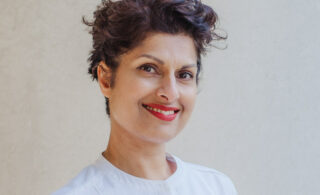
Have you just received a breast cancer diagnosis and you’re wondering how it will affect your ability to continue working? Or maybe you’re going through cancer treatment and you desperately need time off work but can’t afford it? Perhaps you’ve had a break from work for cancer recovery and now you’re struggling to get back into the workforce? Cancer has the ability to affect every aspect of your life but work can feel like a particularly tricky area to navigate, and of course, everyone’s circumstances are unique.
However, there is some practical advice that’s worth knowing, whatever your situation. We recently held an event at Future Dreams House, in which a panel of speakers discussed their personal experiences of working with cancer, and shared their solutions to cancer-related work problems. This is a useful summary of where you stand legally, courtesy of solicitor Will Clayton, from Constantine Law.
Here are some of the questions that were covered in the talk. We hope you find the answers useful and do check out Macmillan’s thorough guide to navigating work alongside cancer.
How will cancer affect my work life?
This will vary, depending on the stage of your cancer, the treatment that’s required, how you respond to it, and your financial situation. Teena Gill, who works for Savills and has stage 4 breast cancer, talks about the reasons why she chose to continue working throughout cancer treatment because it gave her structure, purpose and extra “motivation to get up every morning”. You can read her story here.
While reading other people’s experiences can be useful, nobody should feel shame or guilt for choosing a different path – what might work for one person, might not work for another and it comes down to personal choice and circumstance.
Do I have to tell my boss that I have cancer? And what should I expect?
It’s your choice but telling your manager or HR is a wise move because from that moment on, you’re afforded substantial legal protections under the Equality Act 2010. Click here for more legal info.
However, there is absolutely no need to share your diagnosis more widely with other colleagues if you don’t wish to do so. Employers should respect your privacy and treat anything you tell them confidentially.
“HR should take the lead from you,” explains Naomi Hands, who heads up Human Resources for Estee Lauder Companies in the UK and Ireland. “You should expect empathy and to be listened to. You should feel supported in your decision to work or not to work after a cancer diagnosis – and if you’re going to continue working, your employer should work through all the options and support available.”

I’m worried the conversation will be awkward.
The reality is that most HR professionals will have crossed this bridge with other employees and they should be adept at handling the situation with care. If you’re worried, try practising the conversation ahead of time.
Coach Carla Faria, who was treated for breast cancer in 2021, says that it’s a good idea to ‘test’ what you’re worrying about.
She explains: “Our brains are wired to anticipate the worst and be ready for it, and when you’re in fight or flight mode – as many of us are when dealing with cancer – you can get there very fast.”
When you’re dreading a conversation, Carla suggests asking: what’s the story I’m telling myself? She advises writing this down and then comparing it against what’s actually happening. When you put those lists side by side, you’ll see your fears against the evidence, and that will help you move forward from a place of confidence, rather than fear.
My boss isn’t being supportive or flexible. What can I do?
Will Clayton from Constantine Law says, “Employers are legally required to make reasonable adjustments to ensure that employees with cancer are not put at a disadvantage.”
Common adjustments could include flexible working such as allowing for part-time hours, making changes to the workplace to make it more comfortable, and job role adjustments such as relieving someone of certain duties, providing this is what the person wants.
You can remind your boss of these obligations, and the Macmillan Support Line (0808 808 00 00) can be extremely helpful with practical advice if you’re struggling with an unsupportive manager.
I’m applying for jobs – do I have to tell them I have/had breast cancer?
Job applications should not be asking you to disclose personal health matters but you may decide to disclose your diagnosis or history of breast cancer further down the line. This is a personal choice. If you do not get the job as a result of telling your prospective employer about your health, you may be able to file a discrimination claim. There is more information about how to navigate this here.
Unfortunately, many people do struggle to re-enter the jobs market, particularly if they’ve got gaps on their CV. Estee Lauder’s Naomi Hands suggests reframing your CV – this could mean ordering your employment according to skills and experience rather than dates.
Having cancer has made me re-evaluate my life, and I am struggling to care about my career and my work. Any advice?
It’s very common for a cancer diagnosis to prompt people to re-evalutate their lives and decide that they want to make changes. Often people realise that they want to give up work after a cancer diagnosis, or have a radical career change. This is what happened to Carla Faria, who ended up leaving her media career of 25 years to retrain as a coach following her breast cancer diagnosis. She says her breast cancer diagnosis prompted her to reflect on her goals and aspirations.
Key takeaways:
- Fundamentally you must not mislead your employer. You can elect not to give them information about your cancer diagnosis, but if you give it, then you must not mislead.
- You should expect compassion and confidentiality from your employer. If this isn’t forthcoming, try the Macmillan Support Line: 0808 808 00 00.
- Remember: your diagnosis doesn’t define you, especially at work. What defines you at work is your skills, experiences, capabilities and the value that you add every day – back yourself.

Further information
Future Dreams hold a range of support groups, classes, workshops and events to help you and your carers during your breast cancer diagnosis. These are held both online and in person at the London-based Future Dreams House. To see what’s on offer and to book your place, see here.
To return to the homepage of our Information Hub, click here . You can access more helpful information, practical advice, personal stories and more.
Unless otherwise specified, the information and content provided on this page has been written from a patient’s perspective then reviewed by (1) a breast care nurse and (2) Liz O’Riordan, (breast surgeon, co-author of best-selling ‘The Complete Guide to Breast Cancer: How to Feel Empowered and Take Control’ and speaker) and it is intended for information and educational purposes only. It is not intended to substitute for professional medical advice. Please contact your medical team for advice on anything covered in this article and/or in relation to your personal situation. The links and/or recommendations in this article to third-party resources are for your information and we take no responsibility for the content contained in those third-party resources.
Share

Support awareness research
Donate to those touched by BREAST cancer
Sylvie and Danielle began Future Dreams with just £100 in 2008. They believed nobody should face breast cancer alone. Their legacy lives on in Future Dreams House. We couldn’t continue to fund support services for those touched by breast cancer, raise awareness of breast cancer and promote early diagnosis and advance research into secondary breast cancer without your help. Please consider partnering with us or making a donation.


